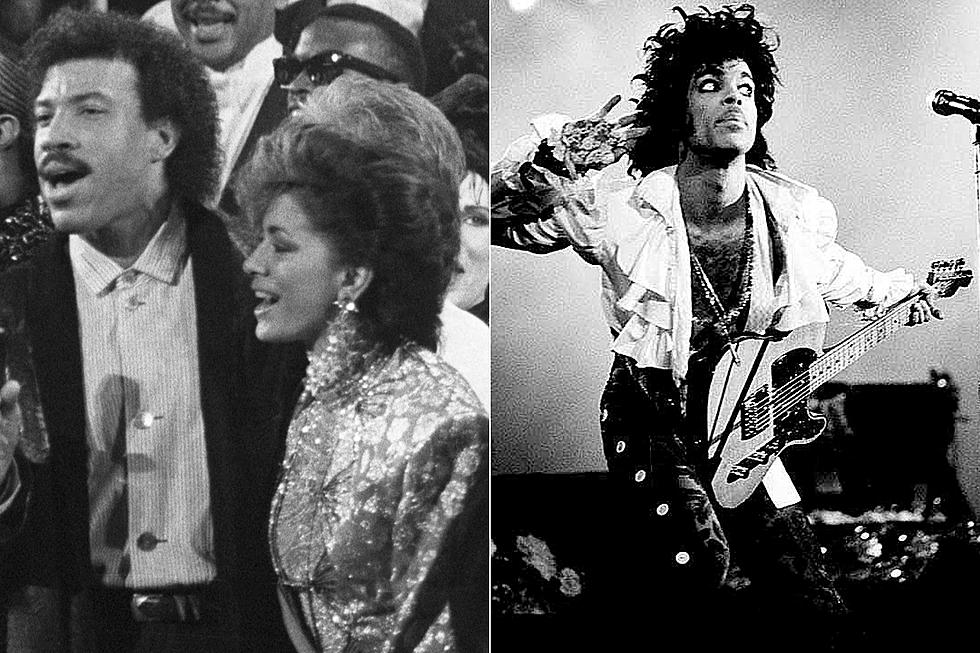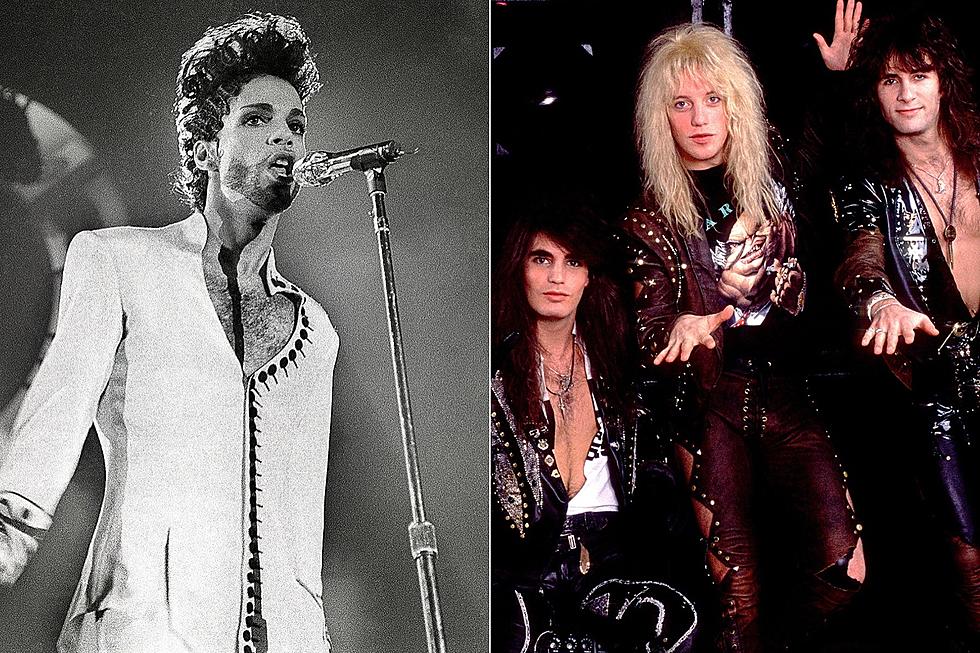
Prince Goes to the Dark Side on ‘Dance With The Devil’
“Dance With The Devil” is one of the darkest songs in the Prince canon; so dark it was left off the track list on the album for which it was written. According to PrinceVault, it was recorded in February of 1989 during the initial Paisley Park sessions for the Batman album.
The song takes on several meanings depending on which lens you use to appreciate it. It has deep ties to Tim Burton’s film, Prince’s career turmoil at the time, and his rich history of using religious themes in his music.
The title of the song stems from the haunting line Jack Nicholson delivers in his Golden Globe-nominated performance as The Joker: “You ever dance with the devil in the pale moonlight?” In the film, the line is the Joker’s kiss off to his victims; it triggers Bruce Wayne’s memory that it was the Joker who killed his parents. By featuring one of the film’s most pivotal lines, one would think the track would be an essential element of the Batman album, but Prince felt it was too dark and replaced it with the chart-topping novelty hit, “Batdance,” at the last moment.
Prince was doing a lot of second-guessing at this point in his career. His landmark album, Purple Rain, was now four albums old – five if you include The Black Album, a record he pulled at the last minute for similar fears it was too dark to release. However dark The Black Album’s themes (it was eventually released in 1994), it pales in comparison to “Dance With The Devil.” The only thing close to it is “The Undertaker” which came out in 1995 – just not in America.
Save for the quote from the film, there is no other reference to the Batman film or its themes in the song. “Cunning liar, eternal fire / Demon clever, promise 4ever / The curious try and always die…” sets up a song clearly in the lyrical Upside Down to the more joyous songs of faith and devotion heard in “The Cross,” “God,” and even the eerie redemption opus “Temptation.”
Hear Prince Perform "Dance With the Devil"
In his book, Prince: The Man and His Music, Matt Thorne gives “Dance With The Devil” a deep analysis. “Prince seems to blame the victim,” Thorne writes, “Suggesting that dancing with the devil is something someone does out of curiosity, and in doing so, the person dooms themselves.”
Throughout Prince’s life, he vilified Warner Brothers Records, and the record industry at large. Signing with a label seemed to be a deal with the devil that he begrudgingly made. It seems unheard of today that any label would give an artist five albums to land a major hit, let alone the ability for an untested teenager to produce their own debut album. Prince resented the label’s reluctance to release music as quickly as he produced it even though in the '60s, it was completely common for bands like the Beatles to release more than one album per year.
Batman came a few years before Prince scrawled the word “slave” on his face to protest the Warner Brothers renewal deal he signed, one reportedly worth more than $100 million dollars. Batman was a “cross platform synergy” project straight out of the WB’s corporate boardroom. Prince wanted Warner Brothers Pictures to green light Graffiti Bridge despite the box office failures of Under The Cherry Moon and Sign 'O’ The Times. Warner Brothers needed to resurrect a faded icon (Batman, last seen as a campy TV series) and hopefully launch a new film franchise. The sheer fact Prince was so moved by an early edit of the film that he wrote an entire album about it generated opening weekend buzz for the film. The blockbuster success of the film drove the album and single, “Batdance,” to the top of the charts.
Prince would remain a blockbuster live draw for the rest of his life. He signed more artist-friendly, one-off licensing deals with many labels over the years, eventually returning to Warner Brothers two years before his death. In one final dance with the devil, Prince reportedly exchanged participation in a Purple Rain reissue for the return of his master tapes. As Prince once said, “if you don’t own your masters, you master owns you.” As premature and tragic as his death was, he died a free man and left the devil in the dust.
Prince Magazine Ads Through the Years
More From Ultimate Prince










